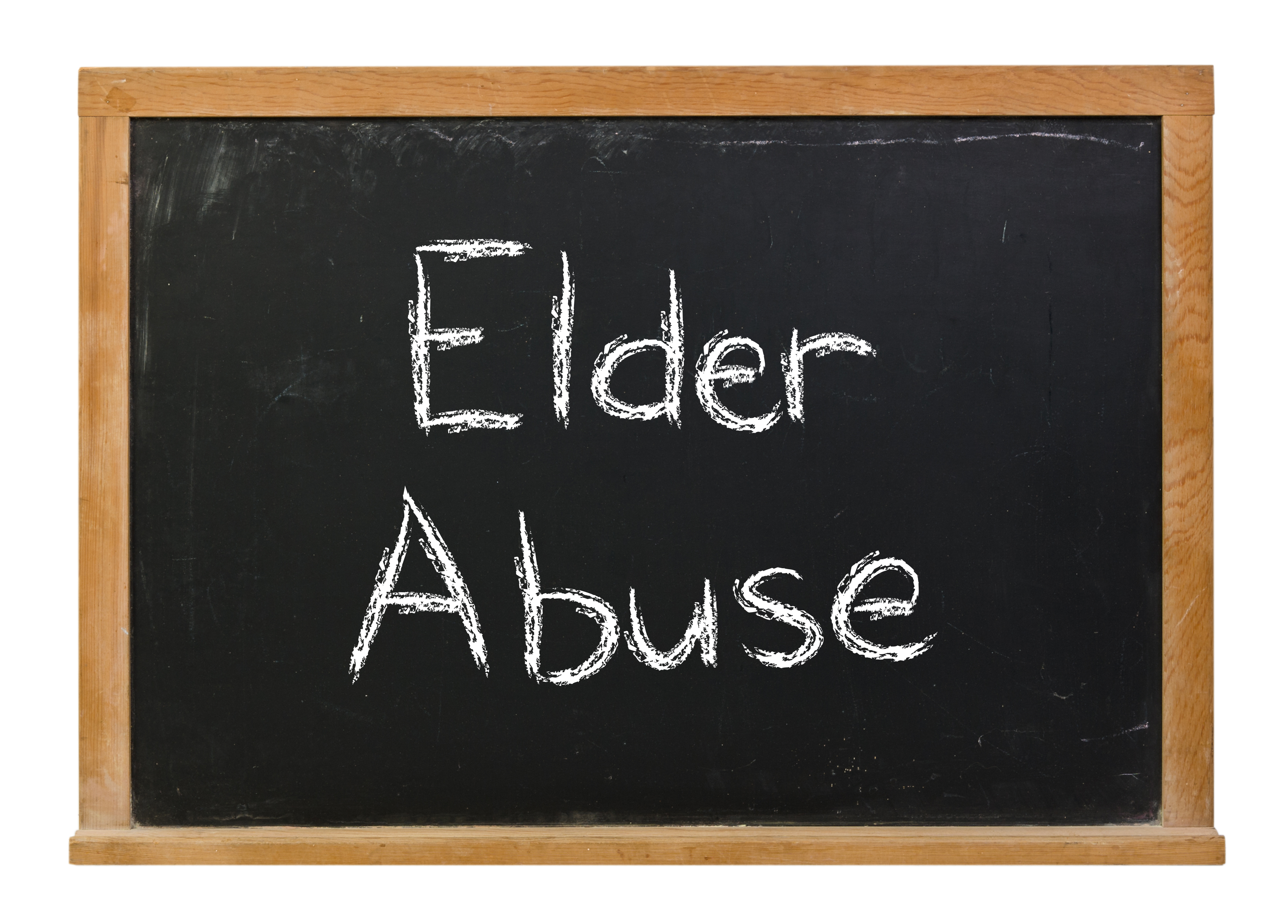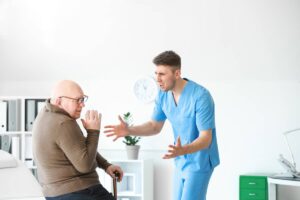Why is Elder Abuse Not Reported to the Police?

The law is clear that elder abuse must be reported to the local police but why are many cases of abuse not being reported by nursing homes?
A recent NPR article shed a lot of light on nursing home abuse and how it just isn’t being reported as it should. I’ve also written on the topic in the past. My website offers detailed information on reporting nursing home abuse: How To Report Elder Abuse. I encourage you to visit that page of my website and act if you suspect your loved one’s injuries or death were the result of abuse by the nursing home and its staff.
The NPR article found: “Two reports from the federal government have determined that many cases of abuse or neglect of elderly patients that are severe enough to require medical attention are not being reported to enforcement agencies by nursing homes or health workers — even though such reporting is required by law.” (NPR Reporting Nursing Home Abuse to Authorities)
The research, conducted and published by the Office of Inspector General of the U.S. Department of Health and Human Services, finds that in many cases of abuse or neglect severe enough to require medical attention, the incidents have not been reported to enforcement agencies, though that’s required by law. One of the studies focuses solely on the possible abuse of nursing home residents who end up in emergency rooms. The report looks at claims sent to Medicare in 2016 for treatment of head injuries, body bruises, bed sores and other diagnoses that might indicate physical abuse, sexual abuse or severe neglect.
The deputy inspector general for audit services, says her team found that nursing homes failed to report nearly 1 in 5 of these potential cases to the state inspection agencies charged with investigating them. . ..
But the failure to record and follow up on possible cases of elder abuse is not just the fault of the nursing homes. Jarmon says that in five states where nursing home inspectors did investigate and substantiate cases of abuse, “97% of those had not been reported to local law enforcement as required.”
State inspectors of nursing homes who participated in the study appeared to be confused about when they were required to refer cases to law enforcement, Jarmon notes. One state agency said that it contacted the police only for what it called “the most serious abuse cases.”
Considering this unnecessary confusion regarding how and when to report abuse let us all be diligent and err on the side of over cautious. If something even has the appearance of wrong when it comes to our elderly or disabled loved ones speak up. Call the authorities, call the Ohio Department of Health and in some cases contact a Nursing Home Injury Attorney.
What is Nursing Home Abuse
Federal Law (F600) defines “abuse” as the willful infliction of injury, unreasonable confinement, intimidation, or punishment that results in physical harm, pain or mental anguish to the resident. Deprivation of good services by a caretaker that are necessary to maintain the resident’s well-being is also considered a form of abuse. The regulation clearly states that irrespective of any mental or physical condition, abuse of residents causes physical harm, pain or mental anguish. Forms of abuse include verbal abuse, sexual abuse, physical abuse and mental abuse – including abuse facilitated by technology (i.e. social media).
Can you imagine? Even the definition of nursing home abuse is upsetting. Its heartbreaking to imagine that our loved ones could ever be abused by their caretakers. The necessity of my profession as a Nursing Home Abuse Attorney is a reflection of how terribly often abuse occurs and how the nursing homes certainly aren’t holding themselves accountable!
How to Spot Nursing Home Abuse and Neglect
Most nursing home residents are elderly, with several medical problems that could result in death. So how do you determine if a death is due to care home abuse? Below are conditions that may indicate nursing home abuse or neglect.
- Pressure sores or bedsores:Pressure sores occur on the bony prominences, such as buttocks and heels, and are caused by prolonged pressure when the resident cannot reposition themselves.
- Dehydration:Signs of dehydration can be confusion and weakness, and in the elderly who have multiple medical problems, dehydration can be deadly.
- Multiple falls:Nursing homes are required to alert family members to a change in condition such as a fall. Falls can result in fractures, and if not diagnosed in a timely manner, the resident can suffer for days prior to treatment.
- Bruises:Bruises found on the chest, back, arms and legs can be signs of abuse by the nursing home staff or other residents. Bruises without explanation by staff should be treated with suspicion.
- Sudden changes in mental status:If a resident becomes confused or does not recognize family and friends, this can be a sign of abuse (e.g., dehydration, medication errors or infection). If a change in mental status is not immediately evaluated by the nursing home, it can be a sign of neglect.
My website contains more helpful information as well. Please visit Nancy C. Iler Law Firm LLC to learn more about nursing home abuse.
The Ingredients in a Recipe for Tragedy:
CMS- the government agency that often pays for long term care notes that there are some facility characteristics that can increase the likelihood for abuse that administration needs to be on the lookout for:
- Chronic staffing issues, staff burnout and stressful working conditions
- Staff attitudes toward residents that are unsympathetic or negative
- Inadequate training/preparation to fulfill caregiving duties
- Deficiencies in providing a safe resident environment
- Policies that are not resident-centered and “operate in the interests of the institution”
- Lack of administrative oversight
Please Call Our Firm Today for a Free Consultation with Nancy Iler, Nursing Home Abuse Attorney, and to Learn About Your Options.

